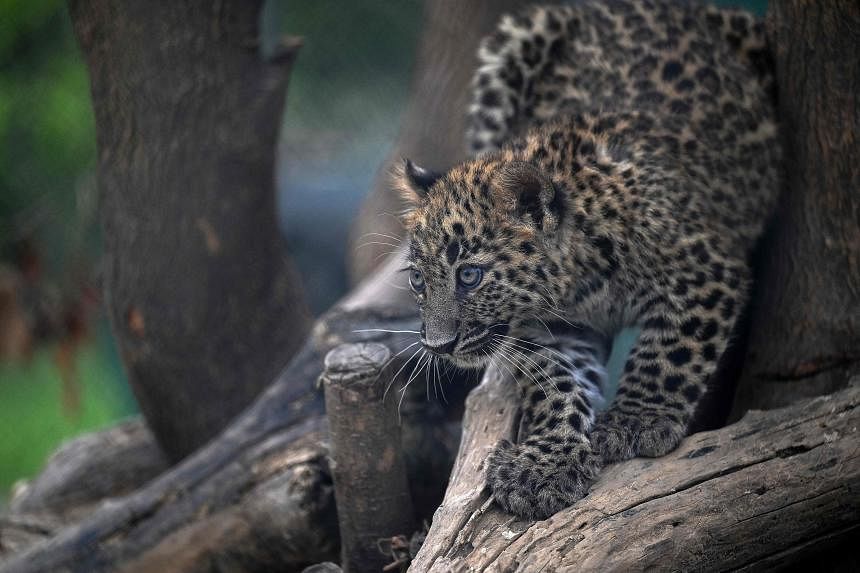
ISLAMABAD – Before it was forced to close over its “intolerable” treatment of animals, the Islamabad Zoo was home to neglected elephants and underfed lions pacing back and forth behind the bars of their enclosures.
Now, four years later, it is a rehabilitation centre for Pakistani wildlife, providing a refuge for motherless leopard cubs, tigers seized from owners who kept them as status symbols, and bears forced to dance – or fight – for the amusement of crowds.
“The whole energy of the place has changed ever since the zoo was emptied… The care shows, look around,” Ms Rina Saeed, head of the Islamabad Wildlife Management Board (IWMB), told AFP.
The zoo gained international notoriety in 2016 when American singer Cher launched a campaign to remove its shackled Asian elephant Kaavan, the last in Pakistan and dubbed the “world’s loneliest elephant”.
But Kaavan’s treatment was not an isolated incident. Two lions died at the facility when zookeepers attempted to force them from their pen by setting fire to piles of hay. And over the years, hundreds of animals listed on the zoo’s inventory simply vanished.
Pakistan’s Climate Change Ministry said it was “seriously concerned” about the “intolerable and inhumane” treatment of animals at the zoo in 2020 – the same year the courts ordered it shut and Kaavan was moved to Cambodia.
Within months of its closure, a small rescue centre began to take root at the facility, and now, evidence of its past as a tourist attraction is fading – silence hangs over the empty, overgrown carpark and the shabby ticket stand sits idle next to a swing set.
“Now, it is a proper rehabilitation centre with over 50 animals,” Ms Saeed said, adding that the team had rescued more than 380 animals.
‘Unrecognisable’
The IWMB team rescues animals from across Pakistan, recently taking in two indigenous leopard cubs poached from their mother, bears once forced to fight dogs in underground competitions, and monkeys made to dance for tips.
Dr Amir Khalil, a veterinarian who directs global animal welfare organisation Four Paws, which oversaw Kaavan’s relocation, recently made an emotional return to the zoo, saying it “now holds hope”.
Vets from the Austria-based non-governmental organisation came to the centre to look after three black bears whose claws had been removed by their previous owners, treating them in the shadow of an abandoned Ferris wheel in the zoo’s former cafe – now a makeshift clinic.
“This place is unrecognisable,” Dr Khalil said, while inspecting one of the animals, an overweight former dancing bear called Anila.
Anila was also suffering from a nose infection due to a ring pierced through her snout to help keep her under control.
“We hope this place turns out to be a place for animals with a better future,” Dr Khalil said.
